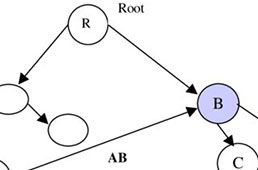
The Hidden Link

This time we would like share with you a few thoughts regarding the festival of Purim and also explore the deeper meaning of the name Esther – its link to the ten commandments.
On Purim, quoting from the book of Esther, it is customary to say “VENAHAFOCH HOO”
(opposite, upside down, backward)
ונהפוך הוא
This expression means that the events that took place eventually turned out to be contrary (in opposite direction) to what the original plot of Haman was.
The “stubborn” attitude of Mordechai the Jew, who did not agree to bow before Haman,
eventually caused the course of events to take just the opposite direction – Haman’s wish to destroy the entire Jewish nation turned against him as well as all those who joined him in that wish.
To demonstrate the principle of “VENAHAFOCH HOO” in a fun atmosphere, in many schools in Israel on Purim students teach and teachers become students.
In families kids assume parents’ roles and vice versa.
הפוך in Hebrew means opposite, upside-down, reversed, backward.
On Purim we read the Book of Esther.
A question is asked:
May one read the Book of Esther (Megillat Ester) backwards?
The Talmud answers: “One who reads the Megillah backwards has not fulfilled the mitzvah (commandment) of reading Megillah.”
The founder of the Chassidic movement – Baal Shem Tov comments on that: If you read the Megillah thinking it’s only about the past (backwards), you miss the point.
Instead, taking the example from Mordechai, it’s about how People of Israel should be at all times:
Now and in the Future – as in the Past.
And now let us get a deeper understanding of the name Esther.
The Talmud asks, “how do we derive Esther from the Torah?”.
The Talmud replies: in the Torah it says (Devarim 31:18) “Anochi haster asteer…”, I am the Lord who will surely conceal. ” (”asteer” ” I will hide, is written with the same letters as Esther.
So, the name Esther carries in it the meaning of hiding/concealing something.
The word “Anochi” – אנכי in Hebrew is another form of expressing I – אני
The same form “Anochi” is used in the first verse of the Ten Commandments:
“I am the Lord your G-d who took you out of the Land of Egypt”
אָנֹכִי יְהוָה אֱלֹהֶיךָ אֲשֶׁר הוֹצֵאתִיךָ מֵאֶרֶץ מִצְרַיִם מִבֵּית עֲבָדִים
Thus, one can see that there is a hidden link connecting the “Ten Commandments” to the “Book of Esther”.
We may say that the two “Anochis” insinuate that the People of Israel have two ways of recognizing the reality.
1. When G-d reveals himself and performs public miracles.
2. When G-d’s presence is concealed and redemption comes in unexpected ways.
Our Sages teach that in the times to come, the various Jewish festivals will cease to be observed, but Purim will still continue to be observed.
The Midrash derives this conclusion from a statement in Megillat Esther, (9:28)
“The memory of Purim will never cease from among their descendants.”
At the time of the final redemption the festivals with which the Jewish people felt the presence of G-d’s guiding hand through great historical events will no longer be required.
At that time, the holidays, all of which are rooted in the Exodus, will pale when exposed to the glare of the light of redemption.
But the ability of the People of Israel to recognize the hand of G-d’s guiding providence when G-d’s hand was concealed (as in the events described in the Book of Esther) will remain their eternal possession.
Therefore, Purim will continue to be observed forever.
For this Purim we have decided to grant a free access to our beginner level book of Esther:
Please use the link below:
https://www.ulpanor.com/ebooks/purim/beginner
Purim Sameach,
Yoel & Orly
Many ask us for a permission to redistribute our newsletters. By all means, please do feel free to forward this newsletter to anyone you wish!
Access the archive of our previous posts at:
https://www.ulpanor.com/category/blog/
Subscribe to our newsletters on our website at the bottom of the home page:











